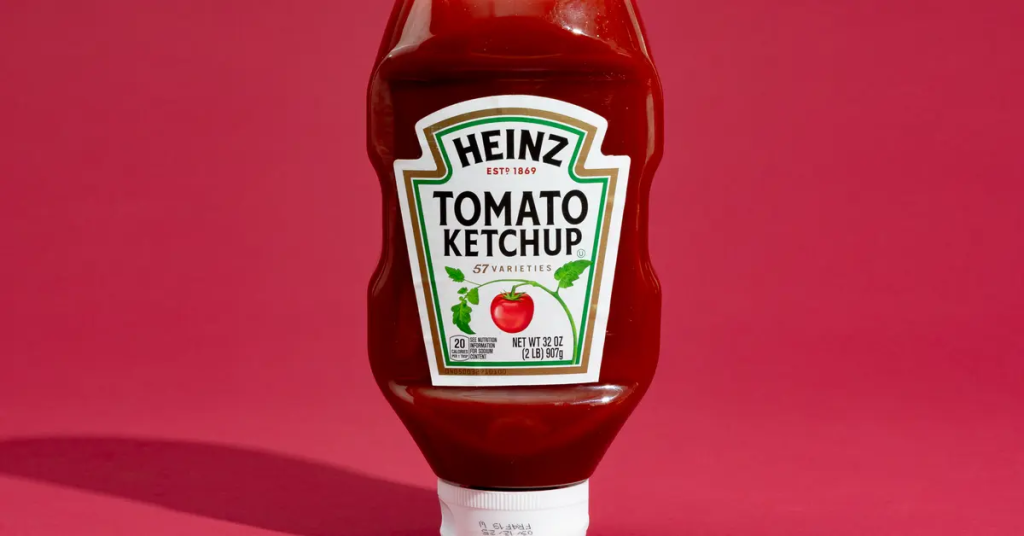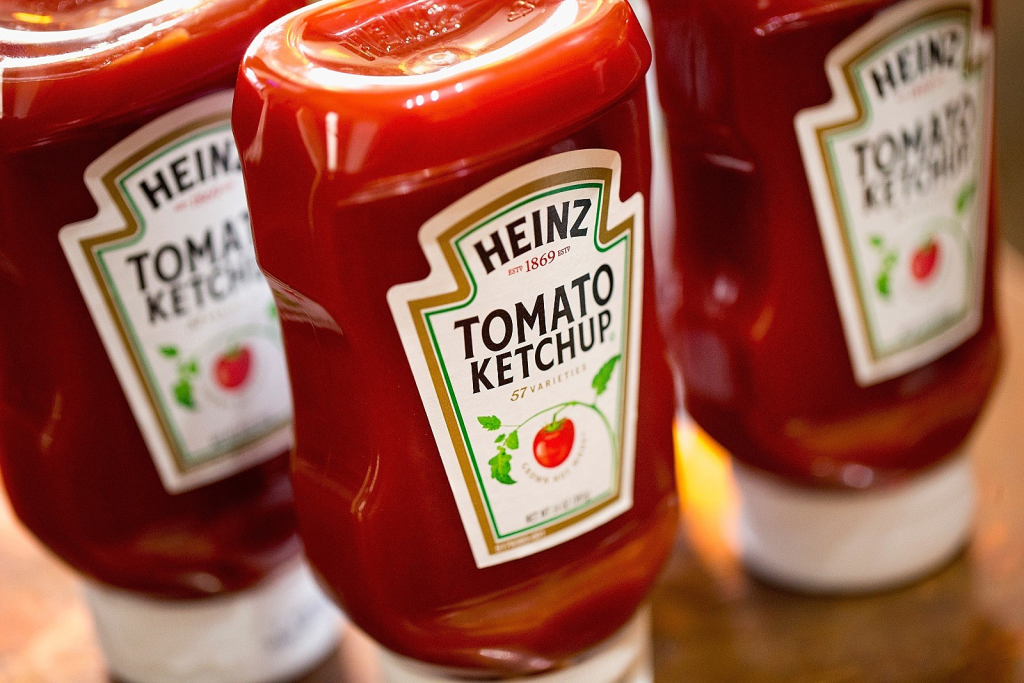Let’s be real—we all love a good dip of ketchup on fries or a burger dripping with it. It’s a classic. But have you ever stopped to flip the bottle and read the label? Most people don’t. And that’s where the problem starts.
Your go-to ketchup, especially popular brands like Heinz, might not be as innocent as it looks. Behind that iconic red hue and nostalgic taste is a not-so-sweet reality: it’s packed with sugar, processed ingredients, and mysterious additives. Yep, your childhood condiment has some grown-up secrets worth uncovering.

Why Most Ketchup Isn’t Made from Fresh Tomatoes
Here’s a mind-bender: that ketchup bottle in your fridge? It’s not filled with vine-ripened tomatoes. It’s mostly made from tomato concentrate, which is just a fancy way of saying boiled-down tomato paste.
What does that mean for you? It means most of the natural nutrients found in fresh tomatoes are lost. And to bring back some flavor and texture, manufacturers load it with sugar, salt, and artificial additives.
Video: How Heinz Tomato Ketchup Is Made
Sugar Bomb: The Hidden Load in Each Squeeze
Let’s talk sugar, because this is where ketchup really crosses the line. A single serving—about one tablespoon—contains up to two teaspoons of sugar. That’s right. And since nobody actually uses just one tablespoon (especially on a big plate of fries), that sugar stacks up fast.
Here’s a jaw-dropping stat: one regular bottle of store-bought ketchup can contain over 30 tablespoons of sugar. That’s like guzzling a soda without realizing it. And the sugar? It often comes from high-fructose corn syrup and regular corn syrup—two ingredients directly linked to weight gain, insulin resistance, and metabolic issues.
The Sneaky Additives Lurking in “Natural Flavors”

Ever seen labels listing “natural flavors” or just “spices”? Sounds harmless, right? But these vague terms are actually the industry’s way of masking what’s really in your food.
Some of these so-called flavors can contain:
- Artificial preservatives
- Flavor enhancers
- Chemical stabilizers
The worst part? Food manufacturers aren’t legally required to disclose what those “natural flavors” actually include. So unless you’re making it at home, you don’t truly know what you’re eating.
How Ketchup Affects Your Health Without You Realizing It
You might be thinking, “Come on, it’s just ketchup!” But let’s break down what regular overuse can do to your body:
- Weight Gain: With all that sugar, ketchup acts more like a dessert topping than a savory dip.
- High Blood Pressure: The sodium content in ketchup can sneak up on you. Just a few extra tablespoons can put you over your daily limit.
- Sugar Cravings and Addiction: Especially in kids, the sweet, tangy profile of ketchup can actually fuel a long-term love affair with sugar.
That’s right—what starts as an innocent drizzle can turn into a daily sugar habit you don’t even notice.
Video: How Tomato Ketchup Is Made In Factory
Better Alternatives: Smarter Ways to Savor the Flavor
Okay, so we’ve busted ketchup’s sweet disguise. But don’t panic—you don’t have to give it up completely. Here are some smart ways to ketchup without compromising your health:
- Choose Low-Sugar Versions: Look for ketchups labeled “no added sugar” or “low sugar.” Brands like Primal Kitchen and Tessemae’s offer cleaner options.
- Make Your Own: It’s easier than you think. All you need is fresh tomatoes, a touch of vinegar, salt, and your favorite spices. You get full control over what goes in.
- Use it Sparingly: Instead of drowning your meal in ketchup, treat it like a flavor enhancer—just a small squeeze will do.
- Explore Other Sauces: Try hummus, pesto, or guacamole for a savory swap that’s loaded with nutrients instead of sugar.
The Real Deal: What You’re Actually Tasting
Ever noticed how kids drown everything in ketchup? That’s no accident. The heavy sugar content acts like a flavor mask, tricking your brain into craving more.
Here’s what’s wild: many processed ketchups are formulated to hit the “bliss point,” a perfect combo of sugar, salt, and acid that hooks your taste buds. That’s the same science used in junk food and soft drinks to make them irresistible.
So while you’re tasting tomato, your brain is soaking up a carefully engineered formula designed to keep you coming back for more.
Why It’s Time to Rethink the Red Stuff

Let’s not demonize ketchup completely—it’s not the enemy. But it’s also not the innocent sidekick we thought it was.
In small amounts and made with real ingredients, ketchup can still be part of a healthy plate. But when it’s processed, packed with sugar, and covering half your meal? That’s where the real problem lies.
Conclusion: A Wake-Up Call in a Bottle
Ketchup may look harmless sitting next to your mustard and mayo, but what’s inside tells a different story. Loaded with added sugars, vague ingredients, and processed tomato concentrate, it’s more of a red flag than a red sauce.
The good news? You’ve got choices. From cleaner store-bought versions to easy homemade recipes, it’s never been easier to ketchup with the times—without sacrificing flavor or your health.
So next time you reach for that bottle, pause. Read the label. Make a mindful choice. Your body (and your taste buds) will thank you.


